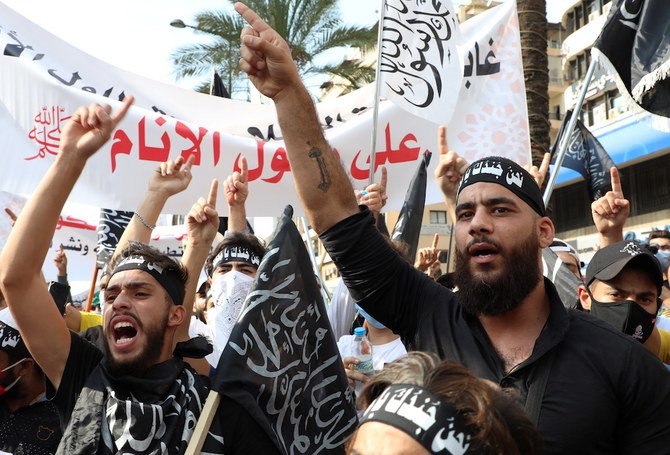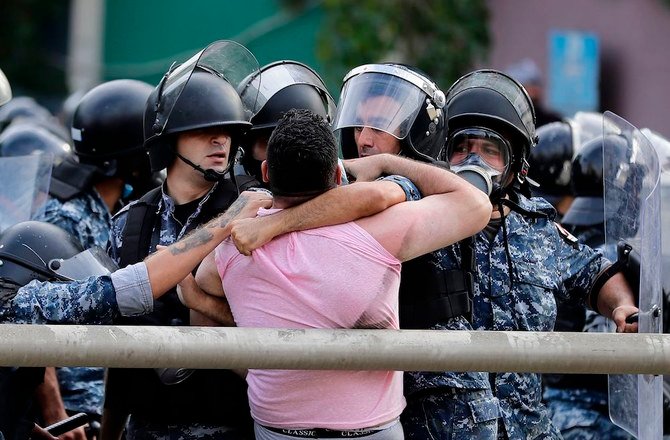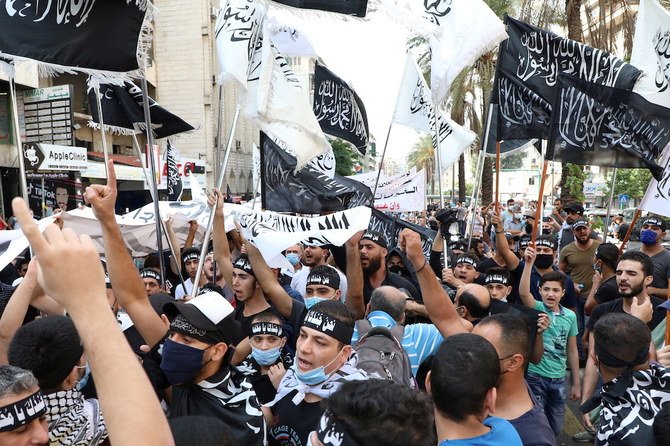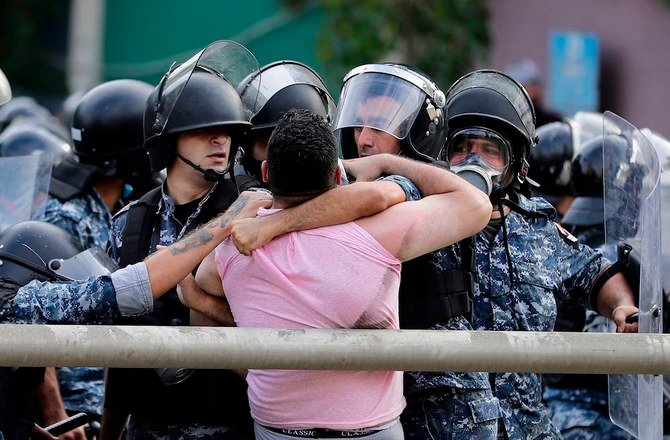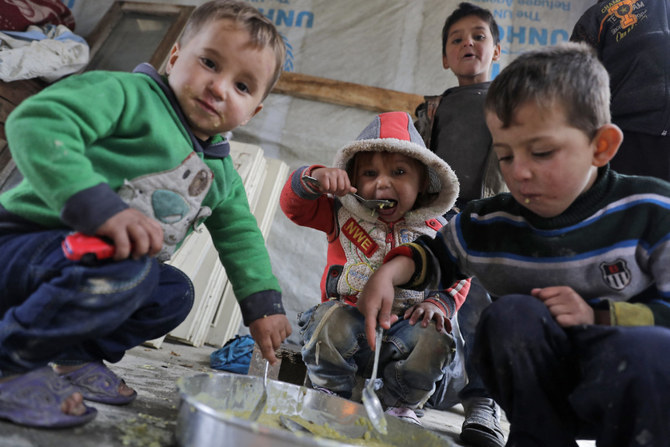BEIRUT: Lebanese security forces prevented the arrival of hundreds of protesters at the French ambassador’s residence and the French Embassy in Lebanon on Friday.
They feared the recurrence of riots similar to the ones that erupted in front of the Danish Embassy in Ashrafieh, Beirut, in 2006, and led to 28 people being injured, damage to storefronts, and the burning of the consulate building and terrorizing of people.
A few hundred worshippers left mosques after Friday prayers and marched to defend the Prophet Muhammad.
Calls for a demonstration by radical Islamic groups spread on social media platforms.
Khaldoun Qawwas, Dar Al-Fatwa’s media spokesperson, told Arab News: “These groups have nothing to do with Dar Al-Fatwa, which has already announced its position regarding what happened in France in two separate statements.”
Sheikh Abdul Latif Deryan, the grand mufti of Lebanon, in a statement issued a week earlier, said that “freedom of opinion and expression does not entail insulting the beliefs and symbols of others, and this requires a reconsideration of the concept of absolute freedom.”
He stressed the “renunciation of violence and confrontation of radicalism and terrorism that has no religion or race.”
Security forces had anticipated Friday’s protest and tightened security in the heart of Beirut, since the embassy and the French ambassador’s residence are located where roads leading to the city’s western and eastern neighborhoods intersect. This led to a huge traffic jam in the capital.
The protest’s starting point was the Gamal Abdel Nasser Mosque in Al-Mazraa, situated only a few kilometers from the Residence des Pins (Pine Residence).
Three major security checkpoints — one set up by the riot police — separated the Residence des Pins and protesters, some of whom were transported by buses from the north of Lebanon to Beirut.
Protesters held Islamic signs and chanted slogans denouncing France, its President Emmanuel Macron and its former colonization of the country. Some protesters tried to remove barbed wire and threw stones, water bottles and batons at the security forces. Another group burned the French flag. Security forces responded by throwing tear gas canisters, leading to the retreat of the protesters.
In a statement, Lebanon’s Supreme Council of the Roman Catholic condemned “the terrorist attack in the French city of Nice.”
The council considered that “this terrorist crime has nothing to do with Islam and Muslims. It is an individual act carried out by terrorists haunted by radicalism, obscurantism and the rejection of the French people’s historical civilizational values. Through their acts, they abuse the spirit of tolerance, coexistence, acceptance of the other and the freedom of thought and belief which all religions call for.”
The council called for “staying away from defaming religions and beliefs and inciting hate and resentment among people, raising the voice of moderation, wisdom and reason, working together in the spirit of the Document on Human Fraternity for World Peace and Living Together announced by Pope Francis and the Grand Imam of Al-Azhar, Sheikh Ahmed Al-Tayeb from the UAE last year.”
During the Friday sermon, Grand Jaafari Mufti Sheikh Ahmad Kabalan condemned “any criminal act against any people, including the French people.” He added: “We categorically reject what happened in Nice yesterday, strongly condemn it and consider it a blatant and insolent attack on Muslims before others.”
He simultaneously condemned “the official French position that affronted the Prophet, took lightly and made light of the feelings of millions of Muslims.”



